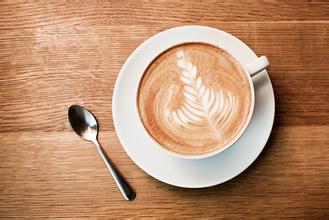Jamaican Coffee Valenford Manor Fine Coffee beans Flavor and taste characteristics of producing areas
The current constitution entered into force on August 6, 1962. The Constitution provides that the Governor appoints the Majority Leader of the House of Representatives as Prime Minister of the Government and appoints ministers on the basis of the Prime Minister's nomination. The Cabinet is composed of the Prime Minister and no less than 11 ministers and is accountable to the Parliament. The leader of the opposition is also appointed by the Governor. [12]
Parliament
It is composed of the Senate and the House of Representatives for a term of five years. There are 21 senators, appointed by the Governor, including 13 recommended by the Prime Minister and 8 recommended by the leader of the opposition. 63 members of the House of Representatives are elected by universal suffrage. The current House of Representatives was elected on December 29, 2011, with 42 seats for the people's National Party and 21 seats for the Dental Labour Party. Senate Speaker Freud Morris (Floyd Morris) took office on May 17th, 2013. House Speaker Michael Peart (Michael PEART) took office on January 17th, 2012. [13]
Judicature
The Jamaican judicial system is modelled on the British judicial system, with the Court of Appeal, the Supreme Court, the Court of first instance and various specialized courts, and the Privy Council of the United Kingdom as the judicial body of final appeal. The presidents of each house are nominated by the Prime Minister and appointed by the Governor with the consent of the opposition for an unlimited term of office. The President of the Court of Appeal, Seymour Penton (Seymour PANTON), took office in July 2007. The President of the Supreme Court, Zara McKara (Zaila MCCALLA), took office in June 2007.
Major political parties
(1) Jamaica Labour Party (JLP): the ruling party. Founded in July 1943. The Party Constitution stipulates that the party is founded on the basis of "healthy Christian principles" and adheres to the highest ideal of democracy. Objectively, it tends to protect the interests of workers and the weak in society, advocate safeguarding the respective rights of workers and employers and developing the private economy. He was in power from 1962 to 1972, 1980 to 1989, and 2007 to 2011. Party leader Andrew Holnes (Andrew Holness). [14]
(12) people's National Party (People's National Party, referred to as PNP): opposition party. Founded in September 1938 as a member of the Socialist International. In 1940, he declared that he would adhere to the "socialist principles". The program of "Democratic Socialism" was put forward in September 1974. He was in power from 1972 to 1980 and from 1989 to 2007. Party leader Portia Simpson-Miller [15].
(3) New Jamaica Alliance (New Jamaica Alliance, NJA): the opposition party, established in June 2002, is composed of the National Democratic Movement (NDM), the Republican Party (RPJ) and the Alliance for National Unity of teeth (JANU).
Political dignitaries
The head of State of Jamaica is Queen Elizabeth II of England, who appoints the Governor to act as head of State [16].
Governor Patrick Linton Allen. Born in Portland on February 7, 1951. He studied at Tooth Moniger normal College and received a bachelor's degree in history and religion, a master's degree in systematic theology and a doctorate in educational administration from Andrews University in the United States. He has worked in the priesthood since 1986. He has served as pastor of the Seventh Day Adventist Church in Spain ("the Seventh Day"), Director of Education and Liaison Affairs of the Central Dental Seventh Church Federation, Director of Education and Family Life Affairs of the West Indies Sabbath Union, President of the Central Tooth Seventh Church Federation, and Chairman of the West Indies Seventh Day Alliance. In 2006, he was awarded the "Medal of Excellence" by the dental government. The sixth Governor of Tooth became independent on February 26, 2009.
The real Blue Mountain Coffee is one of the most advantageous coffee growing conditions in the world. The weather, geological structure and topography of Jamaica provide a unique ideal place. The ridge across Jamaica extends to the east of the island, and the Blue Mountains are more than 2100 meters high. The cool weather, foggy weather and frequent rainfall reconcile the rich land of Rain Water. Here people use a mixed planting method to plant coffee trees next to banana trees and alligator pear trees in terraces. Some small estates also grow Blue Mountain Coffee, such as Wallenford Estate, Silver Hill Estate and Atlanta Estate in J.Martinez. Even the largest landowners in the region are small-scale growers by international standards, many of whom are small landowners whose families have been working on the land for two centuries.
The coffee industry in Jamaica faces a series of problems, such as the impact of hurricanes, the increase in labor costs and the difficulty of mechanizing terraces. It is difficult to rationalize planting on many small estates and farms. However, Blue Mountain Coffee is one of those coffee retailers that value credibility to stock some coffee no matter what. A leading British retailer said: regardless of the price, he will continue to sell Blue Mountain coffee all year round because he has many customers who only recognize "Blue Mountain".
Now, 90% of the post-harvest Blue Mountain coffee is bought by the Japanese. In 1992, Jamaica sold 688 tons of Blue Mountain coffee to Japan, 75 tons to the United States and 59 tons to Britain. Now, because the rest of the world can only get 10% of the production of Blue Mountain coffee, regardless of the price, blue
Mountain coffee is always in short supply. In the UK, Langford Brothers Brothers has been the only supplier for many years. Later, the Edmunds Group (Edmonds Group) also got a supply from Jamaica's Salda Foods Food Company. It is said that the real blue mountain caffeine is made from the best local raw coffee beans, which is the fun of tasters. Its flavor is rich, balanced, fruity and sour, and can meet people's various needs. In addition, the flavor of high-quality fresh Blue Mountain coffee is particularly long-lasting, as drinkers say-endless aftertaste.
It is necessary to take a closer look at the myth of Blue Mountain Coffee, because the image of the past is often inconsistent with the reality of today. In 1725, Sir Sir Nicholas Lawes brought the first Blue Mountain Coffee species from Martinique to Jamaica and planted them in the St.Andrew area. Today, St. Andrew is still one of the three major producing areas of Blue Mountain Coffee, while the other two are Portland.
(Portland) and St. Thomas (StThomas) producing areas. In eight years, Jamaica exported more than 375 tons of pure coffee. In 1932, coffee production reached its peak and more than 15000 tons of coffee was harvested. But by 1948, the quality of coffee had declined and Canadian buyers refused to renew their contracts, so the Jamaican government set up the Coffee Industry Committee to save the fate of top coffee. By 1969, the situation had improved because the use of Japanese loans improved the quality of production, thus ensuring the market. Even in 1969, Japanese coffee drinkers were willing to pay insurance for the coffee, but now it has reached the point of being madly loved. By 1981, about 1500 hectares of land in Jamaica had been reclaimed for coffee cultivation, followed by investment in another 6000 hectares of coffee land.

Important Notice :
前街咖啡 FrontStreet Coffee has moved to new addredd:
FrontStreet Coffee Address: 315,Donghua East Road,GuangZhou
Tel:020 38364473
- Prev

Jamaican Coffee Manor with excellent Coffee growing Environment introduces Cliff Manor
Since the late 16th century, Jamaica has been repeatedly attacked by pirates from France, England, the Netherlands and other countries. In May 1655, a British fleet led by William Bing and Robert Venabus occupied Jamaica. They immediately invited pirates to the island's port of Loire to help defend the Spaniards from possible counterattacks. Between 1657 and 1658, the Spaniards
- Next

Introduction to boutique coffee with rich aroma and taste characteristics of coffee in Joy Manor, Nicaragua.
Nicaragua is one of the major gold-producing countries in Latin America. It has been proved to have 106 gold veins, with an annual output of 70,000 ounces, ranking 13th in the world. Other minerals include silver, antimony, zinc, copper, lead and so on. Rich in geothermal resources. There are two oil deposits. Forests account for 43% of the country's area, exporting pine and mahogany. Fish and shrimp are rich in aquatic products. [1] Administrative division editors divide the whole country of Nicaragua
Related
- Does Rose Summer choose Blue, Green or Red? Detailed explanation of Rose Summer Coffee plots and Classification in Panamanian Jade Manor
- What is the difference between the origin, producing area, processing plant, cooperative and manor of coffee beans?
- How fine does the espresso powder fit? how to grind the espresso?
- Sca coffee roasting degree color card coffee roasting degree 8 roasting color values what do you mean?
- The practice of lattes: how to make lattes at home
- Introduction to Indonesian Fine Coffee beans-- Java Coffee producing area of Indonesian Arabica Coffee
- How much will the flavor of light and medium roasted rose summer be expressed? What baking level is rose summer suitable for?
- Introduction to the characteristics of washing, sun-drying or wet-planing coffee commonly used in Mantenin, Indonesia
- Price characteristics of Arabica Coffee Bean Starbucks introduction to Manning Coffee Bean Taste producing area Variety Manor
- What is the authentic Yega flavor? What are the flavor characteristics of the really excellent Yejasuffi coffee beans?

